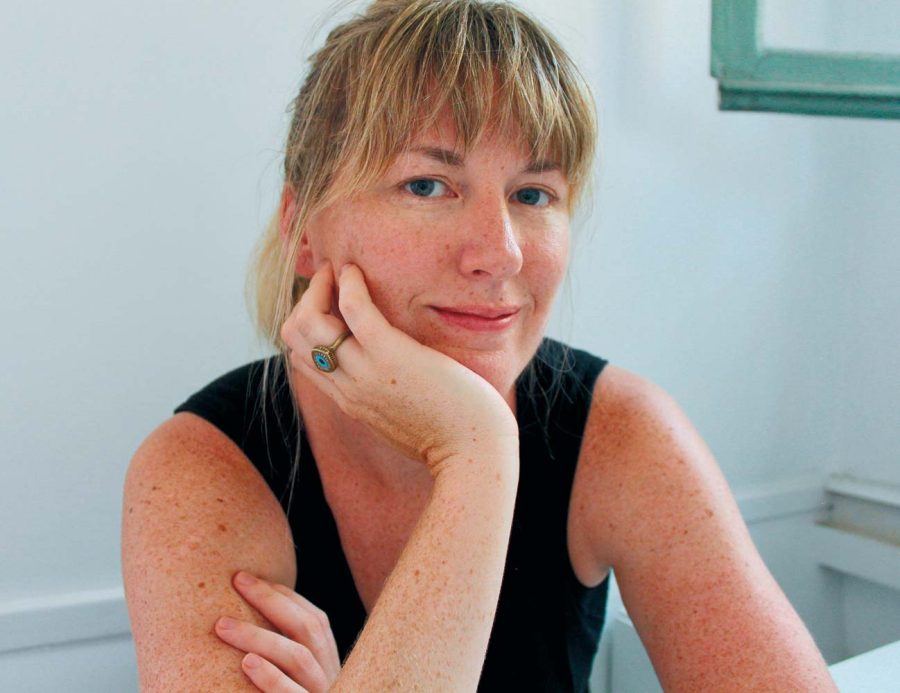Ask the Author: Maggie Shipstead
Maggie Shipstead is a graduate of the Iowa Writers’ Workshop and New York Times-bestselling author of novels Great Circle, Astonish Me, and Seating Arrangements. Her novel, Great Circle, was recently shortlisted for the 2021 Booker Prize.
October 11, 2021
Maggie Shipstead is a graduate of the Iowa Writers’ Workshop and New York Times-bestselling author of novels Great Circle, Astonish Me, and Seating Arrangements. Her novel, Great Circle, was recently shortlisted for the 2021 Booker Prize. The book follows a daring female aviator, Marian Graves, who is determined to be the first to fly around the world north to south, and Hadley Baxter, a modern-day movie star playing the role of lost pilot Marian Graves.
DI: What was your inspiration for the plot of Great Circle?
Shipstead: I saw a statue in 2012, when I was traveling in New Zealand, of a female pilot who’s the first person to fly solo — or fly at all — from England to New Zealand in 1934. Her name is Jean Batten, and I just had this moment of, “Oh I should write a book about an aviatrix.” And so that was the initial sort of seed, and I thought about it for two years. Then I just sort of started writing. I drew a lot from other famous female pilots — Amelia Earhart, Beryl Markham, Amy Johnson, Jackie Cochran. So [I] read a lot of pilots’ memoirs, and otherwise I just sort of built a story as I went.
DI: What was your writing process like for Great Circle?
Shipstead: Well, it varied a lot because I spent so long writing this book. It took three years and three months to write the first draft, which was 980 pages long. If I was really on a roll, I would write every day. I often kind of write mid-morning, early afternoon, and in a cafe outside of my house if I can, but because it was spread out over so many years, it really varied a lot, and there were times when I didn’t write at all.
DI: When did you first realize you wanted to be a writer?
Shipstead: I was pretty late to it. I’d taken some creative writing classes in college, and I graduated, and I really didn’t know what I wanted to do with myself. So, I spent a year working at a law firm, and that’s when I applied to the Iowa workshop, thinking I wouldn’t get in and that then I’d go and apply to other programs. But I got in, and so I went, and it was really while I was there that I became serious about it and thought it could potentially be a career.
DI: What was the best thing out of your time at the Iowa Writers’ Workshop?
Shipstead: Oh, gosh, really just being able to get feedback on short stories — I never workshopped any part of a novel. I always workshopped things that had a beginning, a middle, and an end. And so, just sort of starting to calibrate my sense of how fiction worked and how it landed with readers, that’s something that’s really difficult to replicate without being in a workshop.
DI: And what was the worst thing?
Shipstead: Oh, gosh, I probably drank more PBR than a person needs to drink in their entire life. I really spent a lot of time at the Fox Head and that can’t have been good.
DI: How does it feel to be shortlisted for the 2021 Booker Prize?
Shipstead: You know, it’s so exciting. It’s an honor. It’s amazing to be sort of in the same context of so many books I admire, and it’s also just really thrilling to get to go over to London and go to the ceremony and be a part of it.
DI: Which of your books is your favorite and why?
Shipstead: Great Circle is my favorite of my books. I really put so much that I care about and think about into the book, and it was such a long hard effort to write it, that I’m also just still sort of retroactively relieved it’s finished and done, and I’m really proud of it.
DI: If you could tell your young writer self anything, what would it be?
Shipstead: Just relax. Writing is really a marathon, not a sprint. And I think, you know, when I was in my MFA, everyone’s very competitive, or some people are very competitive, and it feels like every little thing sort of makes or breaks your career. And really you just have to focus on yourself and your own work, and sort of keep going for years or decades.



